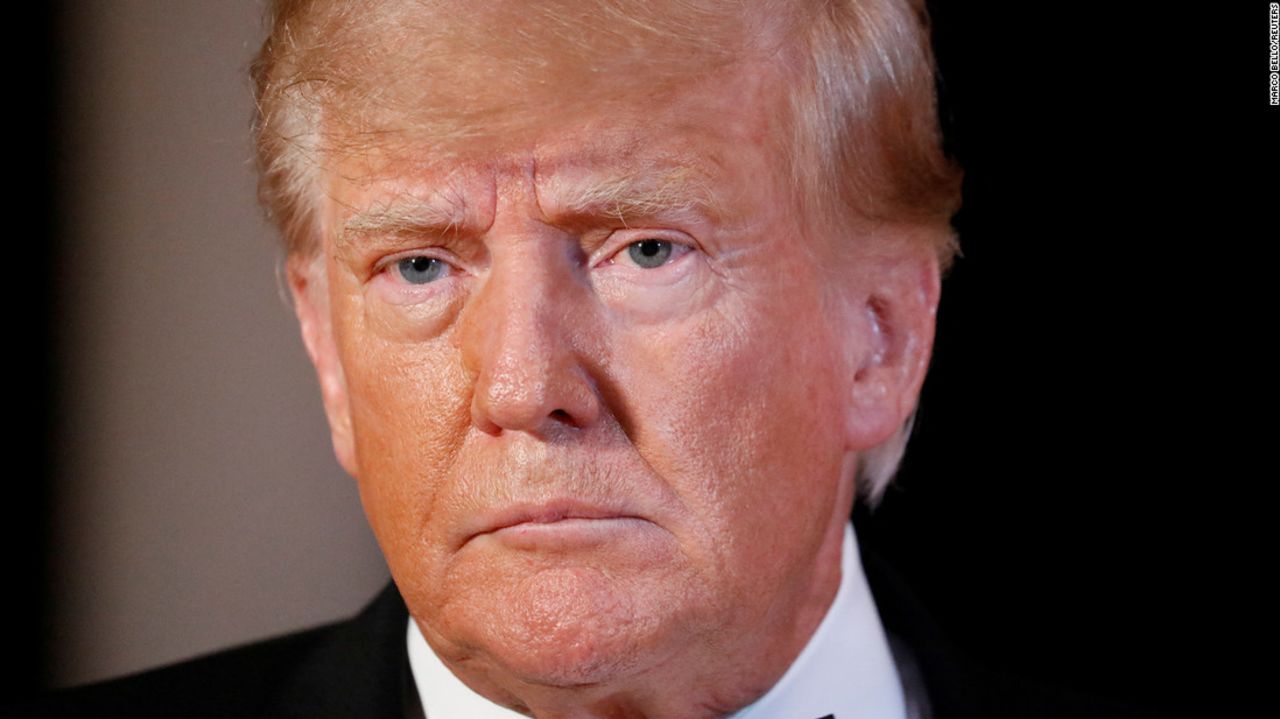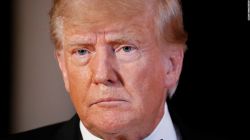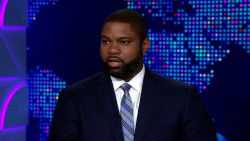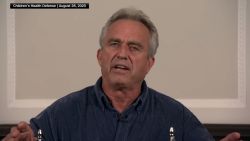The Justice Department on Thursday urged an appeals court to reject sweeping claims of presidential immunity put forward by former President Donald Trump in the civil litigation surrounding the January 6, 2021, insurrection at the US Capitol.
The department told the appeals court – which is considering several private lawsuits brought against Trump for his conduct in the lead-up to the attack on the Capitol – that a president can’t be absolutely immune for speech on a matter of public concern if the speech is found to have incited violence.
“No part of a president’s official responsibilities includes the incitement of imminent private violence,” the Justice Department said in a friend-of-a-court brief that the US DC Circuit Court of Appeals asked the government to file.
Thursday’s brief marks the first time the department has confronted directly the question of Trump’s civil immunity for his conduct related to January 6. The lawsuits were brought by Democratic members of the House and Capitol Police officers.
A 1982 ruling from the US Supreme Court established that presidents are absolutely immune from civil damages arising from their official acts as president – but when presidential speech amounts to an official act is still a murky question for the courts.
The new filing stressed how difficult the legal disputes around the presidential immunity are, with the Justice Department telling the DC Circuit that in “all contexts, questions of presidential immunity must be approached with the greatest sensitivity to the unremitting demands of the Presidency.”
The Justice Department did caution the court against using the January 6 civil cases as a vehicle to draw firm lines on whether president can face liability for speech related to electoral or political concerns. Instead, the department asked the DC Circuit to issue a “narrow” ruling, focused solely on the assertion by Trump’s attorneys that he should be immune to civil lawsuits for presidential speech even if that speech incited violence.
The January 6 civil cases are currently at a phase where courts are weighing questions about the legal strength of the claims against Trump, and those courts are not yet considering the factual merits of the allegations against the former president. A district court judge previously denied a Trump motion to dismiss the case, finding that the former president was not absolutely immune from the civil January 6 lawsuit.
The DC Circuit is now considering a Trump request to reverse that ruling. After hearing arguments on the matter last year, the appeals court invited the Justice Department to weigh in.
“The United States here expresses no view on the district court’s conclusion that plaintiffs have plausibly alleged that President Trump’s January 6 speech incited the subsequent attack on the Capitol,” the DOJ said in its brief. “But because actual incitement would be unprotected by absolute immunity even if it came in the context of a speech on matters of public concern, this Court should reject the categorical argument President Trump pressed below and renews on appeal.”
In response to the filing, a Trump spokesperson said, “The D.C. Courts should rule in favor of President Trump in short order and dismiss these frivolous lawsuits.”
Whether Trump can face certain civil lawsuits for his conduct while in the White House has been tricky ground for the Justice Department to navigate.
The Justice Department, under Attorney General Merrick Garland, came under fire from the left when it held onto the department’s Trump-era position that Trump could not be sued personally for allegedly defaming a woman who accused him of sexual assault. The courts are still considering the question, but if it sides with DOJ, that would force the dismissal of the case, brought by E. Jean Carroll.
In the January 6 civil cases, the department is seeking to take a very precise stance for why Trump could potentially be held liable in the civil lawsuits for his January 6-related conduct.
It is asking the DC Circuit to not issue any ruling that would attempt “to comprehensively define the boundaries of the president’s immunity for his speech on matters of public concern – including when and how to draw a line between the president’s official and electoral speech.”
The Justice Department emphasized it was not weighing in on any potential criminal liability.
In the brief, the department said in a footnote that it “does not express any view regarding the potential criminal liability of any person for the events of January 6, 2021, or acts connected with those events.”
A special counsel is leading a federal criminal investigation into efforts by Trump and his allies to overturn the 2020 election.
This story has been updated with additional reporting.






















